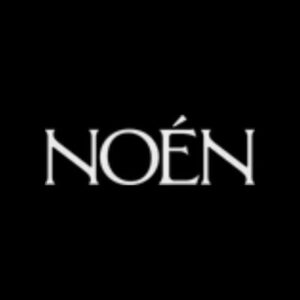
Introduction
Planning for end-of-life arrangements is a sensitive but important task. Choosing between funeral insurance and cremation can impact both your loved ones and your estate. Each option offers unique benefits, costs, and considerations. Understanding the differences between funeral insurance and cremation can help you make informed decisions that suit your wishes and budget. This article explores these two options in detail and provides helpful insights to guide your planning.
What is Funeral Insurance?
Funeral insurance is a type of life insurance policy specifically designed to cover funeral and burial expenses. The policy pays a lump sum to your beneficiaries upon your death, which can be used to cover costs such as caskets, burial plots, service fees, and other related expenses. It provides financial relief to your family during a difficult time by ensuring funds are readily available for your final arrangements.
How Does Funeral Insurance Work?
When you purchase funeral insurance, you pay premiums either monthly or annually. Upon your death, the insurance company releases the death benefit to your designated beneficiary. This money is typically used to pay for funeral services but can also cover other final expenses such as medical bills or outstanding debts.
What is Cremation?
Cremation is a method of disposing of the body by burning it into ashes. It is an alternative to traditional burial and has become increasingly popular due to its simplicity and lower costs. After cremation, the ashes can be kept in an urn, scattered in a meaningful location, or buried in a smaller plot.
Types of Cremation Services
- Direct Cremation: The body is cremated without a formal funeral service beforehand. This option is the most affordable and straightforward.
- Cremation with Memorial Service: A memorial or celebration of life service is held either before or after the cremation, allowing family and friends to gather and pay respects.
Key Differences Between Funeral Insurance and Cremation
Coverage vs. Service
Funeral insurance is a financial product designed to cover the costs associated with a funeral or cremation. Cremation, on the other hand, is an actual method of body disposition. Funeral insurance can be used to fund cremation services or traditional burial.
Cost Considerations
Funeral insurance premiums vary based on your age, health, and coverage amount. It helps manage costs by spreading payments over time. Cremation is generally less expensive than a traditional burial, with costs depending on the type of cremation service chosen and additional arrangements like memorials.
Flexibility
Funeral insurance provides financial flexibility by allowing your family to decide how to use the benefit, whether for cremation, burial, or other final expenses. Cremation offers flexibility in memorial options and the handling of remains but does not provide financial coverage.
Benefits of Funeral Insurance
- Ensures your funeral or cremation costs are covered
- Reduces financial burden on family members
- Allows you to plan ahead with peace of mind
- Can cover additional expenses beyond funeral costs
Benefits of Cremation
- Typically more affordable than traditional burial
- Offers flexibility in memorial services and final resting place
- Environmentally friendly option for some
- Simpler logistics with fewer arrangements required
Which Option is Right for You?
Choosing between funeral insurance and cremation depends on your personal preferences, financial situation, and cultural or religious beliefs.
- If you want to ensure your final expenses are covered and provide financial relief to your family, funeral insurance is a practical choice.
- If affordability and simplicity are your priorities, cremation may be the preferred option.
- Many people opt to combine both, purchasing funeral insurance to cover cremation costs and memorial services.
Considering your family’s wishes and discussing your preferences with them can also guide your decision.
Conclusion
Both funeral insurance and cremation offer distinct advantages for end-of-life planning. Funeral insurance provides financial protection and peace of mind, while cremation offers a simpler, often more affordable method of body disposition. Assessing your financial situation, personal wishes, and family preferences can help you decide which option best meets your needs. Planning ahead ensures that your final arrangements reflect your values and provides comfort to your loved ones during a difficult time. Start exploring your options today to make the choice that’s right for you.
Frequently Asked Questions (FAQs)
Can funeral insurance cover cremation costs?
Yes, funeral insurance benefits can be used to cover cremation expenses as well as traditional burial costs.
Is cremation cheaper than a funeral?
Generally, cremation is less expensive than a full traditional funeral and burial, especially when opting for direct cremation.
Can I purchase funeral insurance if I want to be cremated?
Absolutely. Funeral insurance covers the costs of whatever final arrangements you choose, including cremation.
How soon after death does a funeral insurance payout?
Payout times vary but typically occur within days to weeks after submitting a claim and required documentation.
Does cremation affect funeral insurance premiums?
No, the choice of cremation or burial usually does not impact funeral insurance premiums.






